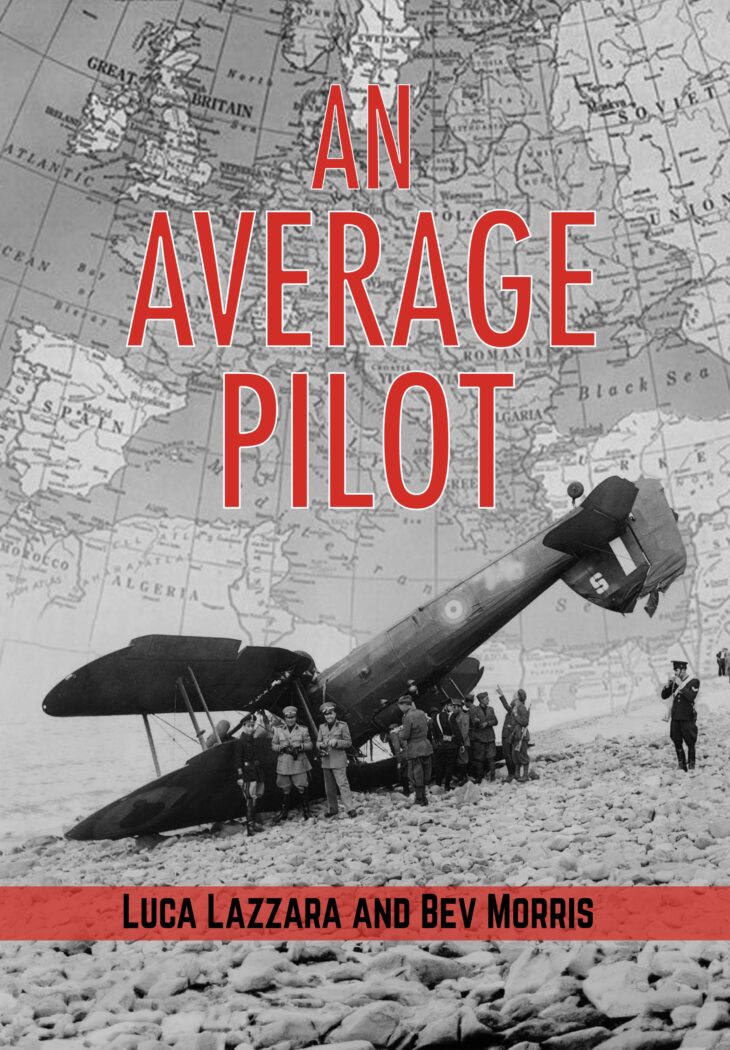
Why do I write military stories? I write them to experience life in a way I could never live it.
I’ve led an ordinary life, but I love extraordinary stories. As a child, I read voraciously, everything from Enid Blyton to Douglas Adams, Charles Dickens to Margaret Atwood. That was in the days before the British education system had embraced diversity, so I had to find worlds beyond my own in adventure stories, science fiction and history. (Nowadays, I would hope children have more access to books written by authors from a range of backgrounds without the need to read about aliens!)
In my latest book, An Average Pilot, I write about a World War II mission over the Strait of Sicily. I’m not a pilot, I wasn’t alive in the Second World War, and I’ve never served in the military. But there was a story waiting to be told so I wrote it together with an airline captain who provided expertise and guidance where my experience was lacking. It’s the same for the military memoir I wrote with a Special Forces operator and the novella in flash I’m currently writing with an ex-Intelligence Officer: I could never enter these worlds except as an author and an author who respects the expertise of those who do live in those worlds.
Rarely can a writer, or creative of any sort, rely wholly on their personal experience to produce work. We all need to research, to learn, to imagine. Now that’s what excites me! We have the power to go on adventures from the safety of our notebooks, laptops, and sketchpads. We hold life and death in our fingertips, and we can still be home in time for tea and a slice of carrot cake.
As a writer of military history, I have the great advantage of being able to access a wealth of existing research and books. I also have the privilege of working closely with veterans and their families. This gives me insight into both their professional and personal lives whilst challenging me to learn quickly about the language, culture, and details of what their lived experience offers a reader. I want to give voice to veterans who are not able to write for themselves and, by doing that, I find my own voice as a writer. It’s a wonderful way to work, collaborating with others and bringing their stories to life.
The other great thing about writing military stories is that there is a fabulous community of historians, aficionados, and researchers as well as the wider military family, all of whom are tremendously generous with their information and support. I’ve connected with people all over the world as part of my writing. My publisher, Double Dagger Books (https://doubledagger.ca/), is based in Toronto, Canada, and found me from a tweet I posted about the book I was working on. I’ve recently been introduced to the inimitable Q at Q’s Comic Store in Hereford (Instagram @QComicstore) and we’re now connecting each other with other useful folk in the writing community. Military writers and readers are an esoteric bunch and seek each other out. This makes it much easier as an author because I’m writing for a niche audience who know what they like and where to find it. But it also means I have to work hard to be credible in such expert company. This is something we all need to remember as writers: we must respect our subjects, real or imagined, and we must write with integrity. Of course, all of us make mistakes but these shouldn’t be from laziness or haste. Writing about lives that are not our own takes much longer to ensure that we have told the story accurately, well, and with compassion. My top tip? Ask lots of questions and don’t skip on the editing!
Writing military stories gives me a seemingly endless supply of inspiration and an equal amount of frustration when details are not at my fingertips, but working this way has vastly improved all my writing. I’m more ready to edit, to check details, and to ask for help than I ever was before. This has given me the ability to see weaknesses in all aspects of my creative process even though that can be a tough lesson. So, I’d encourage you to step outside your comfort zone as a creative, find subjects you don’t understand, and start creating!